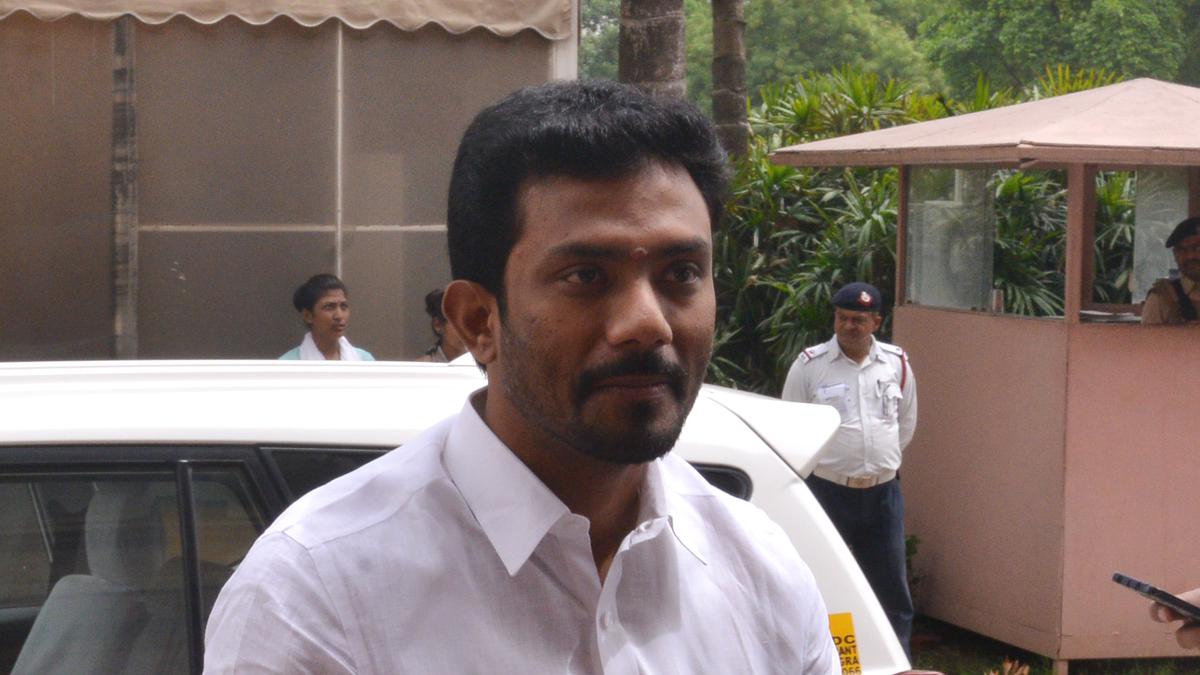
Madras High Court declares 2019 election of Theni MP, P. Ravindhranath Kumar, null and void
The Hindu
The Madras High Court on Thursday, declared as null and void, the election of P. Ravindhranath Kumar, son of former Tamil Nadu Chief Minister O. Panneerselvam, from the Theni Parliamentary constituency in 2019. The court, however, kept its verdict in abeyance for a month to enable him to go on appeal to the Supreme Court.
The Madras High Court on Thursday, July 6, 2023 declared as null and void, the election of P. Ravindhranath Kumar, son of former Tamil Nadu Chief Minister O. Panneerselvam, from the Theni Parliamentary constituency in 2019. The court, however, kept its verdict in abeyance for a month to enable him to go on appeal to the Supreme Court.
To get today’s top stories from the State in your inbox, subscribe to our Tamil Nadu Today newsletter here
Justice S.S. Sundar passed the orders on an election petition filed by a voter, P. Milany who had challenged the MP’s election on various grounds including suppression of his sources of income in the election affidavit submitted at the time of filing nominations, and also on the grounds of the alleged bribing of voters during the course of campaigning.
The verdict was delivered after a full-fledged trial during which the election petitioner and also other contestants including Thanga Tamilselvan had entered the witness box and adduced evidence. The witnesses were examined as well as cross examined by both sides before the judge heard arguments and delivered his verdict.
Immediately after he declared the election to be null and void, Senior Counsel A.K. Sriram, representing the MP urged the court to not give effect to its verdict for a period of 30 days and grant an opportunity to him to approach the Supreme Court. The counsel also cited a legal provision that empowers the court to do so.
Accepting his request, the judge ordered that his verdict shall not be given effect to, for a period of 30 days.

“Writing, in general, is a very solitary process,” says Yauvanika Chopra, Associate Director at The New India Foundation (NIF), which, earlier this year, announced the 12th edition of its NIF Book Fellowships for research and scholarship about Indian history after Independence. While authors, in general, are built for it, it can still get very lonely, says Chopra, pointing out that the fellowship’s community support is as valuable as the monetary benefits it offers. “There is a solid community of NIF fellows, trustees, language experts, jury members, all of whom are incredibly competent,” she says. “They really help make authors feel supported from manuscript to publication, so you never feel like you’re struggling through isolation.”

Several principals of government and private schools in Delhi on Tuesday said the Directorate of Education (DoE) circular from a day earlier, directing schools to conduct classes in ‘hybrid’ mode, had caused confusion regarding day-to-day operations as they did not know how many students would return to school from Wednesday and how would teachers instruct in two modes — online and in person — at once. The DoE circular on Monday had also stated that the option to “exercise online mode of education, wherever available, shall vest with the students and their guardians”. Several schoolteachers also expressed confusion regarding the DoE order. A government schoolteacher said he was unsure of how to cope with the resumption of physical classes, given that the order directing government offices to ensure that 50% of the employees work from home is still in place. On Monday, the Commission for Air Quality Management in the National Capital Region and Adjoining Areas (CAQM) had, on the orders of the Supreme Court, directed schools in Delhi-NCR to shift classes to the hybrid mode, following which the DoE had issued the circular. The court had urged the Centre’s pollution watchdog to consider restarting physical classes due to many students missing out on the mid-day meals and lacking the necessary means to attend classes online. The CAQM had, on November 20, asked schools in Delhi-NCR to shift to the online mode of teaching.









